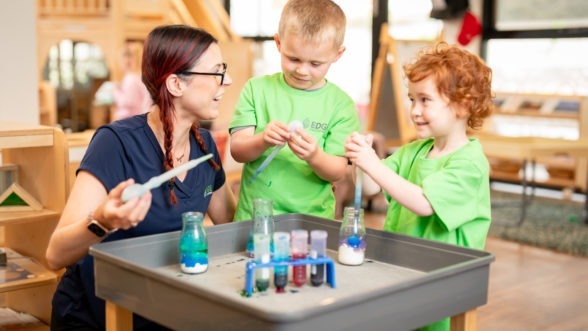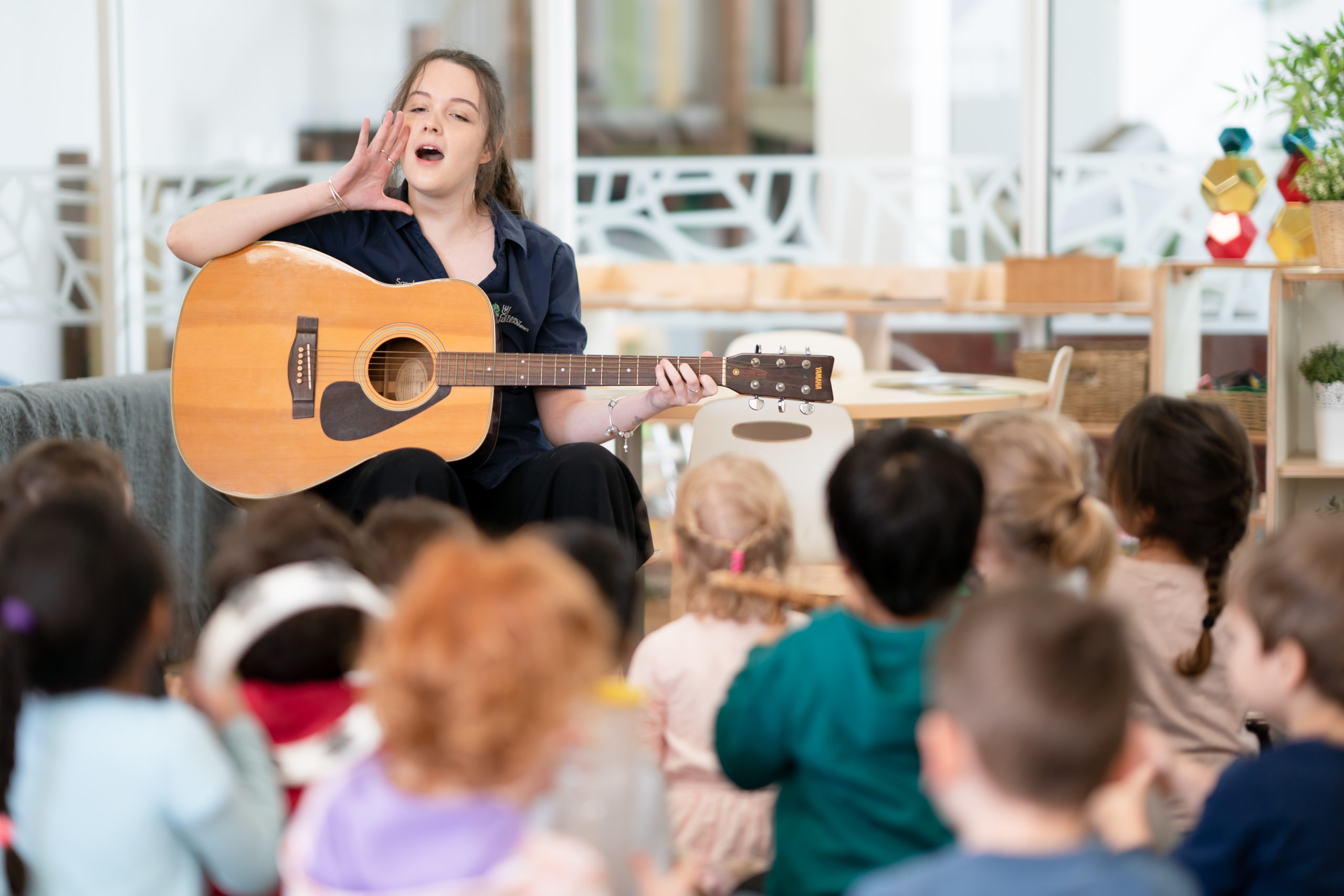We’ve all been there at some time or another. Belting out big lyrics in the privacy of your car while driving. Dancing to music while doing some mundane housework. Tapping along to a song playing in the background at a grocery store.
Whether obvious or not, music has a way of changing your mood, sparking memories and evoking happiness. And music therapy is fast becoming a mainstream treatment for a range of ailments – in adults and children alike.
Groovin Music Therapy’s Karen Richmond, a South-East Queensland registered music therapist with more than 14 years of experience, explains music therapy as “the intentional use of music to actively support people in their health, functioning and wellbeing”.
“Music can be an especially powerful tool to help with many aspects of a child’s development, including social and emotional skills, motor and cognitive development,” Karen says.
“Other ways music can act as a therapy for children is by reducing stress and agitation and it can help control behaviours and improve self-regulation and awareness. Participating in active music making activates the brain, helping join pathways and firing up little minds in ways no other single activity can.”
Music therapists, like Karen, may use various techniques to achieve these different goals in children, some of which include singing along to well-known songs, playing instruments, dancing and moving to music, participation in games as well as vocal and instrumental improvisation.
“Music in the early years encourages all aspects of a child’s development and can also assist with bonding and relationships,” Karen says. “It can be a tool for teaching different academic concepts as well, as it is motivating and fun.”
Karen has developed a CD resource for use in early childhood and for children with disabilities to help children develop a love for music. As she explains, songs that encourage active and purposeful music making in our youngest family members help them achieve social, academic, communication and physical developmental goals.

